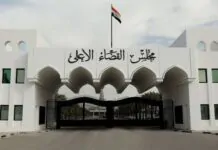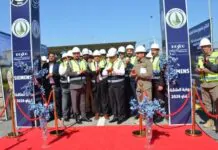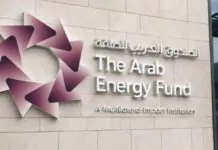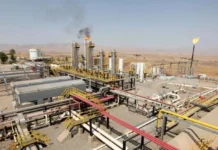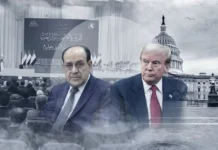A Strong, Diversified, And Sustainable Economy Is A Fundamental Pillar Of The National Security Strategy ( Yrs – 2025-2030 )
Samir Al-Nusairi The Prime Minister announced the Iraqi National Security Strategy, with its axes and objectives, designed to ensure security and economic stability, protect Iraq internally and externally, avoid risks, and enhance the country’s societal security, stability, sovereignty, and prosperity in all areas.
What concerns us as economists is how to achieve the economic goal of the strategy, which constitutes the basic foundation for building effective economic stability and sustainable development in accordance with Iraq’s economic vision for the years (2025-2030).
It is important to note that most countries in the world, whether emerging or fragile economies, have national security strategies that rely on plans to build stability and social development for their people.
The most prominent of these plans relate to ensuring food security, health security, and livelihood security as basic and systematic priorities for building a safe, stable, and developed society. This is what Iraq’s Vision 2030 clearly emphasized and indicated.]
Iraq is currently going through a critical, important, and sensitive phase due to the political, security, and economic circumstances, which can be specifically identified with the fluctuations in global oil prices and the global economic recession.
The economic reality, according to official data, also indicates that
The preliminary results of the general population census indicate that Iraq’s population has risen to 46 million, while unemployment and poverty rates continue at the overall level.
This requires solutions and major efforts to empower youth, reduce unemployment rates, and alleviate poverty in a country that aims to achieve stability in its national security strategy.
To implement the plans drawn up to achieve this, we believe that Building the foundations of a comprehensive national security strategy, with a focus on the economy, must result in security, stability, and economic development that contribute to societal well-being. It must be effective and implementable under the current circumstances in Iraq.
Therefore, many citizens from various levels of government, politics, and economics, as well as university professors, civil society organizations, youth, women, and professionals, must familiarize themselves with the strategy’s details, each within their respective fields, and contribute to achieving its objectives.
The magnitude of the economic challenges, both domestically and internationally, and the continued volatility of global oil prices require a firm stance by all governmental, political, and popular bodies, as well as the private sector, to protect Iraq and sustain the building of a strong, diversified, developmental, and sustainable economy, based on realistic realities.
I believe that the strategy should be a realistic application of the axes of the government program in its economic and security dimensions, and most importantly…
Legitimate demands to eliminate financial and administrative corruption, address unemployment and poverty, and return Iraqi funds stolen by corrupt people.
The basic economic principles of the national security strategy should be as follows:
1- Building a sound national economy with multiple resources.
2- The private sector plays a pivotal role in leading the market.
3- Providing food, medicine and environmental security for citizens.
4- Ensuring a decent life for the individual and the family.
5- Reforming and developing the financial and banking sector and increasing its contribution to economic development.
6- The state guarantees social justice for citizens.
7- Protecting the spirit of citizenship and community and civil peace.
8- Reforming and developing good governance institutions to provide the best services to citizens.
9- Information security and transparency of economic data and indicators.
https://economy-news.net/content.php?id=55809
The Central Bank Launches The First National Strategy For Financial Inclusion
Banks Economy News – Baghdad The Central Bank of Iraq announced on Sunday the launch of the first National Financial Inclusion Strategy for the period 2025-2029.
He follows..
36 views Added 05/25/2025 – 5:18 PM https://economy-news.net/content.php?id=55824
The Central Bank Of Iraq Launches The First National Strategy For Financial Inclusion.
Time: 2025/05/25 Reading: 675 times {Economic: Al Furat News} The Central Bank of Iraq launched, today, Sunday, the first national strategy for financial inclusion for the period 2025-2029.
According to a statement by the Central Bank, a copy of which was received by {Euphrates News}, the strategy includes an integrated framework for financial inclusion aimed at enabling all individuals and companies to access the financial sector and use appropriate and safe financial services while protecting their rights, thus contributing to economic and social development.
In his speech, the Governor of the Central Bank, Ali Mohsen Al-Alaq, emphasized that “the Central Bank of Iraq attaches great importance to enhancing financial inclusion in Iraq, in addition to cooperation at the regional, Arab, and international levels.
The Central Bank of Iraq has worked with international partners to develop a financial inclusion strategy in accordance with international best practices, in partnership with the World Bank Group, the Arab Monetary Fund, the Global Financial Inclusion Alliance, and the German Development Cooperation Agency (GIZ), in addition to local partners from public and private bodies and agencies.”
He added, “The bank is working to achieve a number of goals, including increasing the number of bank accounts, enhancing consumer protection for those dealing with the financial sector, using the latest electronic payment methods, and developing infrastructure and regulations to promote financial inclusion.” LINK
A “Time Bomb” Threatens The Iraqi Economy.. An Expert Explains (Infographic)
economy | 11:58 – 05/25/2025 Mawazine News – Baghdad – Economic expert Manar Al-Obaidi warned on Sunday of the risks of the domestic debt, which has exceeded 85 trillion dinars, describing it as a “time bomb” threatening the Iraqi economy.
Al-Obaidi said in a blog post followed by Mawazine News, “It is often promoted that the domestic debt is not dangerous because it is in dinars and does not affect foreign currency reserves, but this claim reflects either ignorance of the reality of the Iraqi economy or an attempt to reassure people with statements far from the truth.”
He explained that the government’s borrowing from local banks to cover the deficit withdraws liquidity from the market, which means diverting funds that were supposed to finance private sector projects, such as factories, companies, and job opportunities, to mere government salaries and expenditures. He added, “This makes banks merely a fund to cover state expenses.”
He pointed out that domestic loans do not always rely on people’s savings. Rather, the Central Bank often prints new dinars to finance them, in what is known as “deficit financing,” which leads to inflation, rising prices, a decline in the value of the dinar, and directly harms citizens.
Al-Obaidi warned that those who downplay the danger of debt in dinars are ignoring the possibility of a financial crisis even without the influence of the dollar. A government’s inability to repay its debts to banks or a loss of confidence in the banking system could lead to a collapse more severe than any monetary crisis.
He emphasized that most countries borrow to build factories, develop education, or stimulate the market, while Iraq borrows to cover salaries and ministry expenses. This debt is devastating to the economy and burdens future generations.
He expressed concern that the domestic debt, which has increased by 13 trillion dinars in just one year, is equivalent to what accumulated in the previous four years, with no known fate or method of repayment. He said, “This debt has not been used to reduce imports, stimulate the private sector, or create productivity, but has been limited to financing government salaries and expenses.”
Al-Obaidi concluded his warning by saying, “The domestic debt is not as safe as it is portrayed. Rather, it reflects poor management of public funds and perpetuates a chronic deficit.
Those who downplay its seriousness are either ignorant of the figures or seeking to mislead public opinion. It is a fire under the ashes, and if we do not change our spending and management practices, we will face an economic explosion, and we will be powerless to act.” https://www.mawazin.net/Details.aspx?jimare=261890
Minister Of Environment: Iraq Is Making Confident Strides Towards Enhancing Regional And International Cooperation On The Water Issue
Local Economy News – Baghdad Environment Minister Helo Al-Askari affirmed on Sunday that Iraq is making confident strides towards enhancing regional and international cooperation on the water issue.
The ministry said in a statement, seen by Al-Eqtisad News, that “the Minister of Environment sent a humanitarian and environmental message to the world during his participation in the Fifth Baghdad International Water Conference, calling for “international cooperation and the spirit of peace over conflict,” stressing that “humanity, with all its peoples and organizations, strives for security and stability, far from the language of wars and weapons that have long ravaged the world.”
The Minister of Environment added, according to the statement, that “water should not be used as a tool for political pressure or a weapon to punish peoples and nature, but rather must remain a shared resource that promotes peace and contributes to achieving sustainable development, especially since many peoples, including Iraq, bear the burdens of climate change resulting from industrial practices in major countries that continue to violate the laws of nature without deterrence.”
He continued, “Instead of using water as a weapon in our political negotiations, let us water trees, flowers, and green spaces with it.” This way, we restore balance to nature in the face of rapid population growth.”
He explained that “this environmental approach reflects the essence of the Iraqi government’s vision, which seeks to improve a positive and sustainable political climate, especially with regard to water resource management.”
The Minister explained that “Iraq is making confident strides towards strengthening regional and international cooperation on the water issue, through launching qualitative initiatives, most notably the adoption of sustainable agriculture and the intensification of awareness campaigns to rationalize human, agricultural, and industrial water use.
This is in addition to the regional initiative to protect the Tigris and Euphrates, launched by the Prime Minister during the conference, which aims to achieve water security, environmental balance, and utilize technology and innovation to address climate challenges.” The
Minister continued, “Let us remember that all divine books, including the Holy Quran, consider water a sacred blessing that revives humans, animals, and nature, and represents the basis for the sustainability of life if water is made a means of peace rather than a tool of conflict.”
Al-Askari concluded by emphasizing that “Iraq, by virtue of its geographical location and cultural history, is fully aware of the vital role of water in achieving development, and calls on all countries to unite efforts and adopt a common approach that places people and the environment at the heart of water policies.” https://economy-news.net/content.php?id=55826
The Dollar Continues To Fall Against The Dinar
Economy | 11:02 – 05/25/2025 Mawazine News – Baghdad The exchange rate of the dollar fell against the dinar on Sunday morning in the markets of the capital, Baghdad.
The dollar price recorded a decline in the Al-Kifah and Al-Harithiya stock exchanges, recording 141,950 dinars for every $100, while yesterday, Saturday, it recorded 142,100 dinars for every $100.
Selling prices stabilized in exchange shops in the markets of Baghdad, where the selling price reached 143,000 Iraqi dinars for every $100, and the purchase price reached 141,000 dinars for every $100. https://www.mawazin.net/Details.aspx?jimare=261888
For current and reliable Iraqi news please visit: https://www.bondladyscorner.com/


